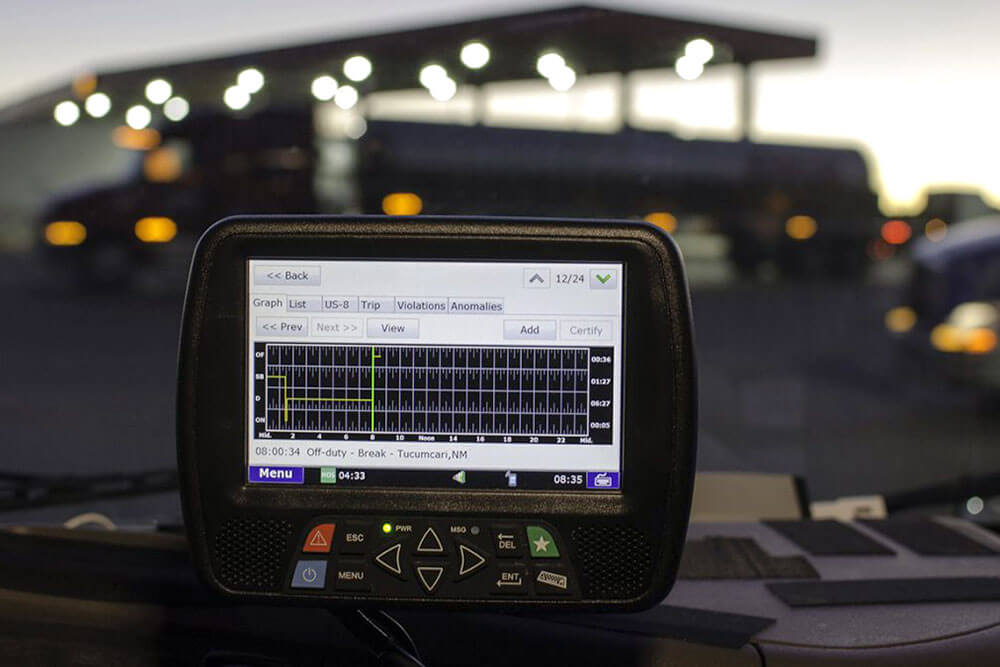Is The ELD Law is Getting Rolled Back?

The ELD Law has been a hot topic since it became law in February of 2017. And in early March 2019, a bill was filed to the U.S. House, which would affect small businesses, single-truck owner-operators, as well as the agricultural and livestock sectors that operate 10 or fewer trucks.
The new bills, H.R. 5948 and H.R. 5949 would exempt drivers that transport agricultural supplies and equipment as well as the small carriers with 10 trucks or less. These two bills, entitled the “Small Carrier Electronic Logging Device Exemption Act” and “Agricultural Business Electronic Logging Device Exemption Act” exempt such businesses from the ELD mandate meaning they could return to recording duty status via paper logs. This is extremely significant since a large majority of trucking operations run no more than 10 trucks.

ELD Facts & Challenges
The ELD Facts
The ELD (electronic logging device) rule was implemented as a way to improve driver safety, reduce accidents by enforcing the HOS (hours-of-service) restrictions, and make the process of logging, managing, and reporting hours easier and faster for everyone involved.
The ELD Challenges
Although the roll out of the ELD regulations were done to increase road safety for everyone, the limitations caused by steadfast restrictions for on-duty hours and enforced breaks has prompted pushback from truck drivers. These restraints cause drivers to shorten their hours to ensure parking in a safe area or ending up in less than desirable locations. In addition to that, loading times are often slow which diminishes productivity.

How ELD Law Impacts Small Business and Agriculture
The ELD regulations have caused issues for truck drivers and fleet businesses of all sizes. A major part of its impact is due to the limitations of allowed driving hours, break times, and loading hindrances.
However, smaller businesses hope that the new exemption bills will counter the unnecessary delays and work stops. Groups affected by the ELD regulations report that these controls are having an even bigger impact than first thought. While other industries complain of slower delivery times and further complications amidst the driver shortage, agricultural companies are running into even bigger issues.
Experts in the agricultural industry say these new limits are causing more food wastage and even putting livestock and livelihoods at risk. In regards to food transportation, not only would changes in the hours better accommodate drivers but it would also make it easier to adhere to the food safety regulations set forth by the USDA and Food Safety Modernization Act Produce Rule.
The ELD laws are in their infancy right now and it’s expected that changes to the regulations will be coming in the next few years, as we learn more about how they’re exactly impacting industries like agriculture. However, some exemptions already exist that have helped keep things moving.
Existing ELD Exemptions
According to the FMCSA (Federal Motor Carrier Safety Administration), the following drivers qualify for exemption and are still allowed to use paper logs, as long as they work either work for small carriers and drive within a 100-air-mile area, or drive for agricultural sectors that operate within a 150-air-mile range.
- Short-haul drivers
- Drivers employed on a timecard system
- Drivers running vehicles that were manufactured prior to the year 2000.
- Those who conduct a drive-away-tow-away operation, or are responsible for delivering other vehicles, motorhomes, or recreational vehicle trailers.
Additionally, the ELD law does not bind drivers who are required to keep RODS for 8 days or less during a 30-day period.

ELD Statistics
With the ELD law being well into its second year of enforcement, statistics based on the available data have brought new topics to light. According to research compiled from January 1, 2017 – September 1, 2018, data from the U.S. Department of Transportation, revealed the following.
- Increased obedience to HOS regulations
- No indication of a decrease in accidents
- Increased speeding violations.
The upsurge of speeding violations primarily involved small carriers and most likely due to limitations imposed by the mandate, which resulted in production losses.
The ELD ruling has been met with animus since its inception, and with the statistics of this research report, the new bill and other proposed changes by the FMCSA, people are seeking modifications that will be less restrictive.

Proposed Changes
OOIDA (Owner-Operators Independent Drivers Association) has been vocal about the restrictions imposed by the ELD law since its inception in 2017. In May 2018, there were similar discussions but the bill did not make it past the House’s Transportation and Infrastructure Committee. And since 2017, multiple petitions have been filed in the interest of truck drivers.
Due to the array of reactions prompted by this law, Ray Martinez, head of the Federal Motor Carrier Safety Administration has been working diligently to review regulations effecting drivers. He is working on issues that would improve flexibility for drivers.
His proposed changes that are under consideration include:
- Increasing the short-haul exemption from 12 to 14 hours on-duty
- Allowing an additional 2 hours on-duty time for drivers who encounter adverse conditions, taking the on-duty limitation from 14 hours to 16 hours.
- Revising the enforced 30-minute break after an 8-hour non-stop drive.
- Reinstating the rest break for those driving trucks with a sleeper compartment allowing the 10-hour off-duty break to be split up.
In Martinez’s speech at the Omnitracs’ Outlook, which was held in Dallas on February 25, 2019, Martinez noted the HOS improvements and said, “these are steps that are in the right direction, and we are committed to seeing better results in 2019.”
Conversely, Martinez is encouraging carriers to transition to ELDs before the final quarter of 2019. After the initial 2017 launch of the ruling, fleets were given until December 16, 2019 to move from the AOBRD (Automatic On-Board Recording Device) to the ELD.
Benefits of ELDs
The data produced by ELDs has the potential to provide fleet managers with eye-opening information that could be beneficial in showing where efficiency improvements can be made regarding routing, driver downtime due to adverse conditions, and loading/unloading times. The ELD data has also benefited shippers, which has prompted improvements on the docks.
Don’t Miss Out
Stay abreast of trucking industry news and insider information by signing up to the Suppose U Drive newsletter and get content delivered directly to your inbox.

